Reality Check: What do diplomats in Scotland do?
- Published
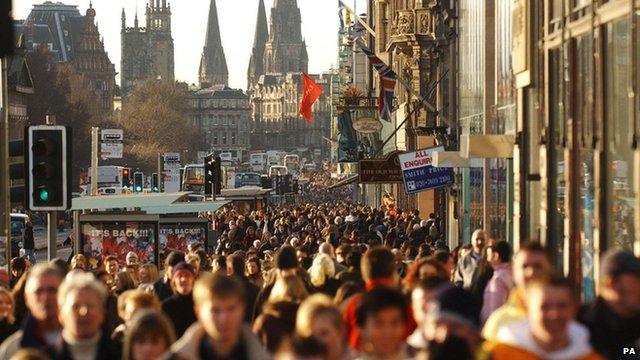
Edinburgh is home to a number of consulates including the US, France and Germany
Controversy surrounding a memo reporting a meeting between Scotland's First Minister Nicola Sturgeon and French ambassador Sylvie Bermann put the role of diplomats in the spotlight. So, how important are they and what do they do?

Being a diplomat in Scotland is usually quite quiet. But sometimes, controversy bursts into the open, and you become the story.
That's how it was for Pierre-Alain Coffinier, the French consul-general, when he reported on a meeting Nicola Sturgeon had had with his boss, the French ambassador.
He spoke to someone in the Scotland Office (part of the coalition government's operations). That official then wrote a memo for other Whitehall officials, which then found its way into the Daily Telegraph, external.
The controversy was about a garbled account of the First Minister's views on whether David Cameron or Ed Miliband would make the better Prime Minister.
The memo suggested Ms Sturgeon had favoured the Conservative leader. It added this seemed a strangely candid opinion to express, indicating it was far from clear what had been meant, and wryly observing that something may have been "lost in translation".
The First Minister hotly denied a preference for David Cameron as PM. Both the ambassador and Ms Sturgeon said there had been no discussion of the preferred outcome of the election.
So that's cleared up then? Well, it still leaves some questions.
For instance.....
What do diplomats do in Edinburgh, when foreign affairs are handled by the Foreign Office in London?
And why would they share the details of a Holyrood meeting with Whitehall officials?
Consular Corps
There are nearly 50 countries represented by consuls in Scotland, most of them based in Edinburgh.
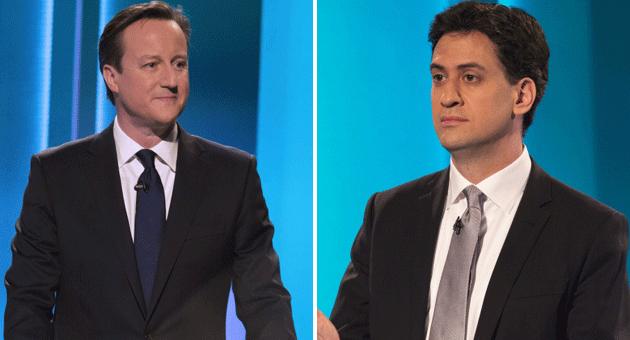
Who's heading to Number 10? David Cameron and Ed Miliband
Their association, founded in 1942, dates its origins back to the first foreign representatives in Scotland during the 11th century. From the 18th century, there were full-time diplomats, mostly in Leith where they could monitor trade.
The US consulate-general has been in Regent Terrace, overlooking Holyrood, for more than 200 years. For diplomats' security, the road was blocked off after the September 2011 attacks on the US.
There are also consulates for most larger European Union member states, including three German diplomats.
The Chinese have a large consulate near Murrayfield stadium. The Russian consulate is on Melville Street, in the capital's west end. The Japanese consul is next door to the Scotland Office, and India has a long-standing presence in Edinburgh's Rutland Square.

Take seven Edinburgh-based consulates.....
United States - Regent Terrace, overlooking Holyrood
China - Large consulate near Murrayfield stadium
Russia - Melville Street, in the capital's west end
Japan - Next door to the Scotland Office
India - Rutland Square in the capital
Ireland - Randolph Crescent
Sweden - Newhailes Road, Musselburgh

Ireland has had a particularly active presence since 1999, as part of the arrangements to secure the Good Friday agreement on Northern Ireland.
Many of the diplomats are honorary consuls, mostly Scots with strong links to foreign countries. These include representatives for South Africa and Namibia. The Portuguese consul is an Edinburgh lawyer, James Rust. The dean of the 'Consular Corps in Edinburgh and Leith' is John Clifford, a Scot who has long represented Austria.
Sweden has a consul in Edinburgh, and honorary representatives in Glasgow, Lerwick and Stornoway.
The consul for Cote d'Ivoire is based in Aberdeen. Glasgow is the base for the representation for Pakistan, Israel and Cyprus. The homes of the Malawian, Nepalese and Mongolian honorary representatives are also in Glasgow, and Ghana is represented from Ayr.
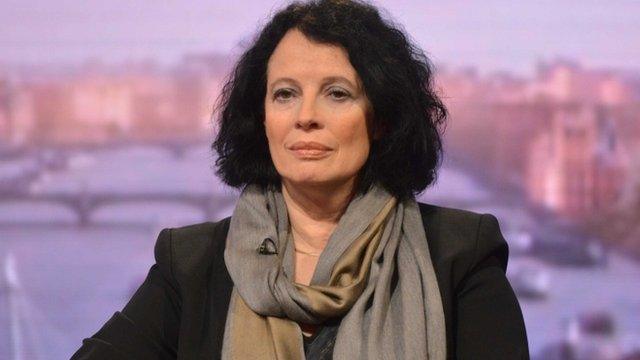
Sylvie Bermann, French ambassador in the UK, met First Minister Nicola Sturgeon in February
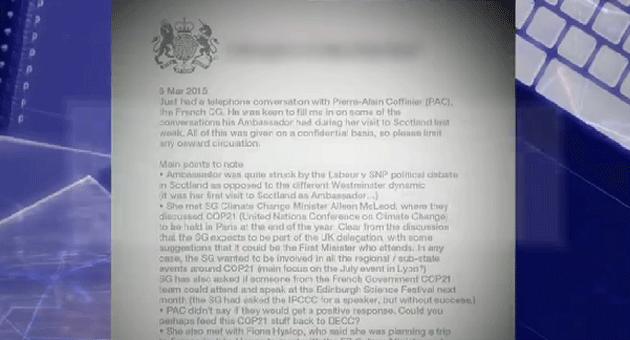
A memo was written after the French ambassador met with the First Minister of Scotland Nicola Sturgeon
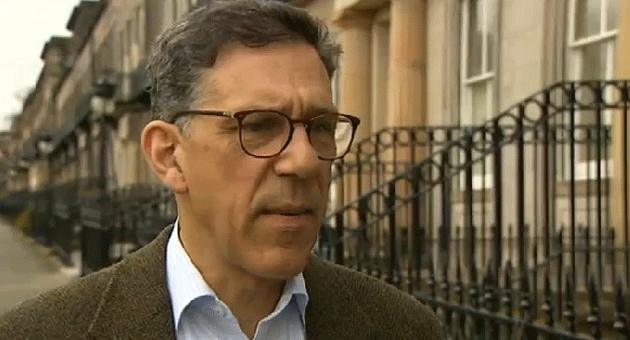
Pierre-Alain Coffinier, the French consul-general, whose comments are claimed to have been the basis for the leaked memo
What do they do?
They are the eyes and ears for the embassy or high commission in London, also reporting back to their home government.
They watch out for their country's economic interests - where there are opportunities for co-operation, trade, direct investment or competition.
For a country such as Japan or the US, that includes monitoring of your country's companies that have a presence in Scotland.
Some can issue visas for visits to their home countries, or help out their nationals who get into trouble in Scotland, say in an accident or following an arrest.
But the question about Pierre-Alain Coffinier's conversation concerns relations with different parts of the United Kingdom. According to the Daily Telegraph, in its initial report:
"It is a common diplomatic courtesy if an ambassador to the UK visits one of the three devolved administrations in Scotland, Wales or Northern Ireland for the British Government to be given an official readout of the conversation".
Is that true? It seems so. According to Austrian honorary consul John Clifford, as dean of the consular corps: "Any contact we have with the Scottish government are completely transparent, recognising that international relations are reserved to the UK government."

Election 2015 - Reality Check

What's the truth behind the politicians' claims on the campaign trail? Our experts investigate the facts, and wider stories, behind the soundbites.
Read latest updates or follow us on Twitter @BBCRCheck, external

This may be carried out in different ways, but if a foreign ambassador based in London has an official meeting with the Scottish government, protocol requires some kind of report back.
"Everything in foreign affairs is reserved," says another Scots-based diplomat, anonymously. "Our primary relationship is with the United Kingdom. That's clear. Everything we do, all the co-operation we have with the Scottish government, is referred to the British government."
And if a Scottish minister travels overseas, protocol also requires that the UK ambassador or a member of embassy staff should attend any official meetings.
'News to me…'
This is linked to the sensitivity of Scotland's relationship with the UK. Similar protocol arrangements would apply to any representation in Spain when an ambassador has an official visit to Catalonia or the Basque region. They might be more relaxed in countries where the relationship between central and devolved government is less contentious, so it may not apply when the British ambassador in Berlin visits the chief minister of Lower Saxony.
Is that understanding of transparency the Scottish government sees it? "The Scottish Government has a good working relationship with all members of the diplomatic and consular community in Scotland," I'm told. "It is for the UK Government to comment on the way it works with them."
That doesn't quite answer the question.
One person who didn't think a private meeting with a diplomat was quite so public is @AMCarwyn. This is one of the Twitter accounts belonging to Carwyn Jones, the Welsh Labour First Minister, who sent a Tweet referring to the Telegraph story just after it broke last Friday: "It's news to me that meetings that I have with ambassadors are reported back to the Tories"
He followed up: "That said, there's nothing I would say to an ambassador that I wouldn't say in public".
So will this transparency continue to see such candid reports back to Whitehall? If it does, you can expect that everyone will be much more guarded about what is said in the official meeting, what is reported back to the UK government, and the level of formality with which it is written.
The next bit of the chain in the story of Nicola Sturgeon and the French ambassador - the leaking of the Whitehall memo once it had been written - is now the subject of an internal UK government investigation.

Election 2015 - Reality Check

What's the truth behind the politicians' claims on the campaign trail? Our experts investigate the facts, and wider stories, behind the soundbites.
Read latest updates or follow us on Twitter @BBCRealityCheck, external
